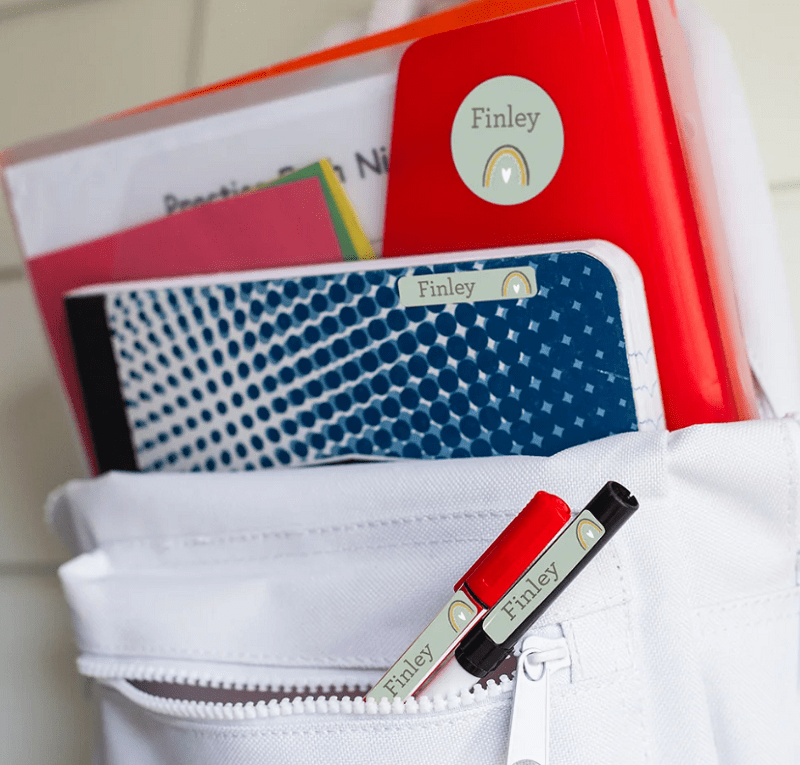Every kid is different and matures at their own pace. That said, there are some basic school-related skills that should be in place by the time your child enters Grade 8. Here is a review of essential skills needed by 8th grade, for today’s young teenager — plus some useful tips to help develop them.
Social Skills Needed by 8th Grade
Young people with strong social skills are better prepared to build positive relationships, meet new friends, navigate unfamiliar situations and manage peer pressure. The social world of preteens and teens is a complex one, and you want your child to feel as confident and comfortable as possible.
Verbal communication. They should be able to choose suitable words and comments for the situation, while speaking a confident tone of voice.
Awareness of non-verbal communication. At this age, they likely understand that body language can also send powerful messages. They will sometimes employ the classic teenage eye-roll, but hopefully they choose the appropriate posture, facial expressions and gestures most of the time. They should also practice reading these cues in others.
Active listening. When someone else is talking, they maintain a respectful amount of eye contact, show engagement through non-verbal signals like nodding, and ask for clarification if needed.
Empathy. Tweens and teens are famously self-centered, so this one can be a big challenge. Ideally, your child can “put themself in the other person’s shoes” and imagine what someone else may be thinking or feeling. As a result, they will be more likely to notice if a family member or friend is struggling.
Self-advocacy. They should know how to speak up for themselves and seek assistance if necessary. They should be aware that help is always available — for example, from a school guidance counselor, a community support service, or a phone/text help line. If an issue arises for them — or for a friend — they should feel secure reaching out to a trusted adult rather than trying to solve it on their own.
Resolving minor conflicts. They should have some experience with patching things up after an argument, apologizing for a mistake, and brainstorming reasonable solutions.
Responsible technology use. It’s critical that this generations innately understands the importance of safe and respectful digital communication. A great mini checklist before posting, sharing, commenting, liking (and so on) is the THINK acronym — is it True, Helpful, Inspiring, Necessary, and Kind?
How to develop your child’s social skills
Some kids are natural social butterflies, while others may need a little more training. Today’s teens have less experience interacting with others face to face, so look for opportunities for them to get some extra practice. Here are some ideas:
- Join clubs, teams or activities (either at school or in their free time) that match their interests, whether it’s sports, art, science, coding, animals or something else.
- Start a simple part-time job or volunteer opportunity, such as babysitting, umpiring, coaching, tutoring, cutting lawns or delivering newspapers.
- Participate in gatherings with family friends, extended family, cousins, and neighbours.
- Organize a social outing with a group of peers.
- Set aside (and mute) all electronic devices during family interactions such as dinner time. Make an effort to interact “the old-fashioned way.”
- Comment on the teenage behavior you see on TV or social media, making it clear when you don’t approve (and why).
- Talk openly about cyberbullying and using technology appropriately. Be aware of the apps your child uses and monitor them if necessary.
- If your child carries a phone, add emergency numbers to their contact list, such as the Crisis Text Line (USA), Kids Help Phone (Canada) and *988, a free suicide prevention and crisis helpline available across North America.
Educational Skills Needed by 8th Grade
Although a solid report card is always a welcome sight, this skill set isn’t necessarily about getting good grades. Rather, it’s about how your child learns and their ability to work through a task in any subject area.
Be comfortable using a computer. They should be able to type proficiently as well as collaborate in online platforms such as Google Docs, Sheets, and Slides.
Understand format and tone. For example, an e-mail to a business owner about a part-time job will be much more formal than a casual text to a friend.
Recognize a story’s structure. This means understanding the key parts of a narrative (i.e. how a story is built with a beginning, middle, and end) and being able to discuss the plot, setting, characters, and theme.
Prove a point. They should have experience with finding evidence in a text to support a statement or opinion. Of course, sources must always be cited to avoid plagiarism.
Follow the writing process. This includes planning, writing a first draft, seeking feedback, editing, and formatting the finished product.
Perform an oral presentation. Public speaking requires preparation — and a fair bit of courage. The sooner they practice speaking in front of a group, the better.
Think sequentially. This is especially valuable in math, where a problem is broken down into logical steps, with precise calculations along the way.
How to enhance your child’s educational skills
You know your child best, and that includes an awareness of their strengths and areas for improvement. Provide an extra boost to their learning skills with strategies like this:
- Read up on learning styles and identify which description best matches your child. Are they a visual learner who likes images and diagrams, an auditory learner who’s great at listening, a reading/writing type who absorbs written information, or a kinaesthetic learner who is active and hands-on? Use that information to help them construct better study notes or approach a project from a different angle.
- Ask them to summarize the plot line of their favourite TV show, movie, or video game. (If you’re baffled by the video game suggestion, consider that there can be a surprising amount of depth in some of these fictional gaming worlds, and your child may be eager to describe it all to you.)
- Hone their typing skills with free online keyboarding games. (My boys grumbled at first, but ended up liking this racecar themed one.)
- If their basic math facts need reviewing, grab some old-school flash cards or use a web-based program like Xtramath.
- For kids who get overwhelmed by large projects, LEGO building sets (and their step-by-step instruction booklets) are an amazing way to teach a patient, methodical approach.
Organizational Skills Needed by 8th Grade
These are the basic skills of getting through the day without being late, forgetting things, and losing stuff. They will be especially important as your young teen gets more independent and is balancing school with other demands and activities.
Punctuality. Being on time is a daily skill, so if your child is constantly oversleeping or missing the bus, maybe a more structured routine is in order.
Managing belongings. This is another daily chore — keeping track of their personal items, to avoid the high cost of replacing things that are left behind.
Time management. When approaching a project or assignment, can your child create a plan and stick to it? Ideally, they’ve developed good study habits and are proactive with schoolwork, rather than leaving things to the last minute.
Sending updates. Especially if your child owns a phone, it’s important that they understand the importance of communicating with family members and caregivers about their after-school plans and location.
Nutrition and hydration. This might be the right age for your child to start packing their own lunch, with some coaching about healthy and responsible food choices.
How to help your child be more organized
Being organized is all about having the right tools — and using them! Try adding these to your family’s current system:
- Personalized name labels for their school gear — let them choose a more sophisticated design from the Middle School Label Pack so they’ll be more motivated to use them.
- Daily alarms that are pre-set on your child’s electronic device for waking up, departing for school, etc.
- Other handy features on your child’s phone or tablet, such as the timer to count down their allotted recreational screen time, or the Notes app to create a to-do list.
- An old-fashioned paper calendar, posted on the fridge or in another prominent spot. Update it regularly with assignment due dates, appointments, field trips and other school events.
- A daily agenda/planner book that your child carries to school.
- A shared online calendar or linked app for up-to-the-minute schedule accuracy.
- A morning checklist that covers eating breakfast, getting dressed, making their lunch, filling their water bottle, and adding any other necessities (such as electronics or Phys. Ed. clothes) to their backpack.

Your child is only in 8th grade, and can’t manage all this on their own yet — but it’s the right time to start learning it gradually. Good luck and remember, Rome wasn’t built in a day!
Here is another great post about general life skills to teach your kids.



